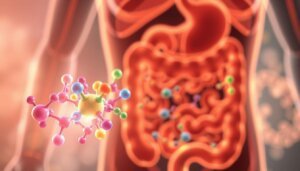Hormones play a vital role in regulating blood pressure, with imbalances potentially leading to hypertension or hypotension. The complex interplay of various hormones, including those produced by the adrenal glands, thyroid gland, and sex organs, influences vascular resistance, fluid balance, and heart function.
The renin-angiotensin-aldosterone system (RAAS) is a key hormonal pathway that regulates blood pressure by controlling fluid balance and vascular resistance. Renin, an enzyme produced by the kidneys, converts angiotensinogen to angiotensin I, which is then converted to angiotensin II by angiotensin-converting enzyme (ACE). Angiotensin II is a potent vasoconstrictor, meaning it narrows blood vessels, thereby increasing blood pressure. It also stimulates the release of aldosterone from the adrenal glands. Aldosterone helps regulate sodium and potassium levels, influencing blood volume and pressure by promoting sodium and water retention in the kidneys.
Cortisol, another hormone produced by the adrenal glands, can affect blood pressure by increasing blood vessel sensitivity to catecholamines, such as adrenaline and noradrenaline. These hormones constrict blood vessels and raise blood pressure. Chronic stress and elevated cortisol levels can lead to sustained hypertension, increasing the risk of cardiovascular diseases. Stress management techniques, such as mindfulness, meditation, and regular physical activity, can help maintain healthy cortisol levels and support blood pressure regulation.
Sex hormones also impact blood pressure regulation. Estrogen, the primary female sex hormone, has vasodilatory effects, helping to lower blood pressure by relaxing blood vessels. This effect is partly why premenopausal women generally have lower blood pressure compared to men of the same age. However, during menopause, declining estrogen levels can contribute to increased blood pressure and the risk of cardiovascular diseases. Hormone replacement therapy (HRT) may help mitigate these risks, but its use must be carefully considered due to potential side effects.
Testosterone, the primary male sex hormone, influences blood pressure by affecting vascular tone and renal function. Low testosterone levels have been associated with increased arterial stiffness and higher blood pressure. Testosterone replacement therapy (TRT) can help improve vascular function and reduce blood pressure in men with low testosterone levels, but it should be administered under medical supervision due to potential risks and side effects.
Thyroid hormones, including thyroxine (T4) and triiodothyronine (T3), play a crucial role in regulating metabolism and cardiovascular function. Hyperthyroidism, characterized by elevated levels of thyroid hormones, can lead to increased heart rate, cardiac output, and hypertension. Conversely, hypothyroidism, characterized by low levels of thyroid hormones, can lead to decreased heart rate, reduced cardiac output, and hypotension. Proper management of thyroid hormone levels through medication and lifestyle changes is essential for maintaining healthy blood pressure.
Insulin, a hormone that regulates blood sugar levels, also influences blood pressure regulation. Insulin resistance, a condition where cells become less responsive to insulin, is associated with hypertension. High insulin levels can increase sodium retention, sympathetic nervous system activity, and vascular smooth muscle proliferation, all of which contribute to elevated blood pressure. Managing insulin resistance through diet, exercise, and medication can help regulate blood pressure and reduce the risk of cardiovascular diseases.
In conclusion, hormones play a critical role in blood pressure regulation, influencing vascular resistance, fluid balance, and heart function. Understanding these hormonal influences and taking proactive steps to manage imbalances can help maintain healthy blood pressure levels and prevent cardiovascular diseases. Regular monitoring, appropriate treatments, and a holistic approach to health are key to managing blood pressure in the context of endocrine function.


